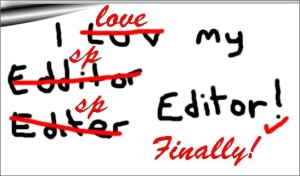Writing a resume can be quite daunting. It can also be a very annoying experience, if you’re not sure what you’re trying to achieve. A resume is essentially a document which defines your skills, knowledge, and experience. If you’re a freshman, that’s not necessarily an easy task.
can be quite daunting. It can also be a very annoying experience, if you’re not sure what you’re trying to achieve. A resume is essentially a document which defines your skills, knowledge, and experience. If you’re a freshman, that’s not necessarily an easy task.
If you’re thinking that you don’t have enough experience, or that your resume looks more like a collection of bits and pieces than a real resume, that’s not the case. A freshman resume naturally includes a range of elements related to well, being a freshman.
You’ll be surprised to find that you do have enough material to put together a competitive resume. It’s how you organise that material into resume basics, and how you present it, that matters.
Basic elements of a fresher resume
A resume needs to be well organized. Your resume needs the easy to read, and most importantly easy to write.
Let’s go through the basics of a resume step-by-step:
- Name and contact information
This information should be in a separate section, with your name in large font, preferably Heading 1 or 14 point standard font. A standard font like Arial is preferred, because computer screening Application Tracking Systems will definitely read this font correctly.
Contact details on your resume should be “businesslike”. Try to avoid using salacious or offensive email addresses, or similar job – non- getting – suicidal contact references.
 Education
Education
Your education record is done in reverse order, similar to the way an employment history is done in reverse chronological order. Start with your current degree; spell out your course and current relevant classes.
- Work, internships and employment

This part of your resume does need to be reverse chronological order, but again, stick to relevant employment. It is advisable to describe the job role, in context with the position for which you are applying.
- Volunteer work/other experience

Any other meaningful work or activities may be included on your resume. Again, stick to work or activities which are within the ballpark as meaningful work. Membership of campus groups or study groups, for example, is an obvious inclusion.
You can also check out our civil engineering resume examples to see how it’s done.
Writing and editing your resume
The most important thing you need to remember about writing a resume is that you are providing information. When you’re writing your resume, consider what information you are actually providing. Are you providing sufficient information? Does the information you are providing make sense?
 Best practice when drafting a resume is to keep sentences simple and brief. You can add more information afterwards. It’s critically important that your information is well organized and easy for your readers to follow.
Best practice when drafting a resume is to keep sentences simple and brief. You can add more information afterwards. It’s critically important that your information is well organized and easy for your readers to follow.
Go through each section of your resume systematically, and check information quality. What’s not good enough? Are you repeating yourself? Is the information you are providing worthwhile for your readers?
The basics of resume writing are essentially an extended communications exercise. Clarity and quality of information are the core elements of success. Be patient while writing your resume. You’ll find it’s easy enough to get it right when you become familiar with it.

